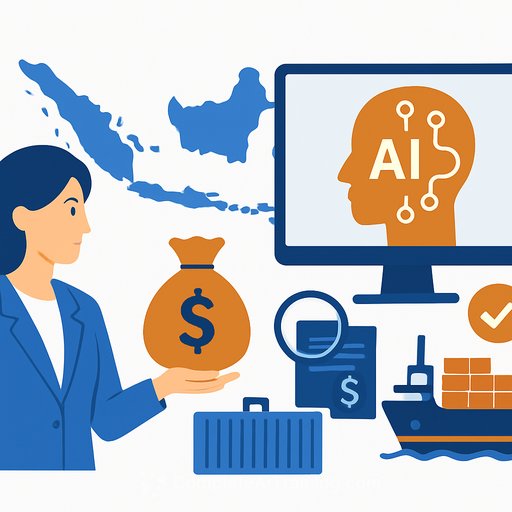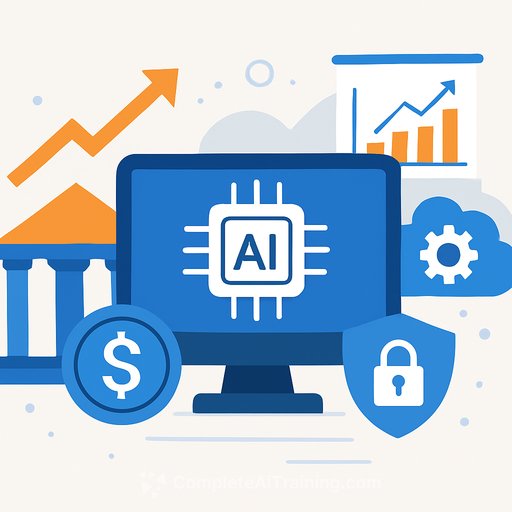Why Open Source Matters in Fintech AI
In the first half of 2025, AI accounted for over half of global venture capital deals, with nearly two-thirds occurring in the U.S. Meanwhile, fintech investment has noticeably slowed. For fintech companies, adapting to this moment isn't optional — it’s essential for staying relevant. Yet a key piece is missing: fintech’s active role in shaping AI’s core infrastructure, including tools, frameworks, and datasets.
Fintech firms are among the heaviest users of open-source AI on platforms like GitHub and Hugging Face, applying AI to underwriting, payments, fraud detection, and virtual assistants. However, their contributions back to these communities remain minimal. This silence could be costing fintech more than expected.
The Rules Are Being Written Without Fintech
While fintech largely observes, other industries are actively defining AI’s future. Health care has published biomedical models that set safety standards for critical uses. Enterprise SaaS companies have released agent frameworks that shape business-AI interactions. Defense contractors contribute synthetic datasets that influence sensitive data handling. These open-source efforts are strategic, not charitable — they ensure AI evolves to meet specific industry needs.
Financial services move over $5 trillion daily and touch nearly every economic transaction, yet the industry is letting others write the AI playbook. The standards and best practices being created now will define what is possible and permissible in AI applications for years to come.
Breaking the False Dichotomy: Open vs. Closed
The common narrative pits open-source community tools against protected intellectual property, causing fintech leaders to hesitate. The truth is that successful companies use both. They contribute foundational open-source tools to accelerate innovation while protecting proprietary layers that differentiate their products.
Staying silent means:
- Standards and safety protocols are set by industries with different risk and regulatory profiles, potentially missing fintech’s unique needs.
- Top AI talent and partnerships gravitate toward companies visible in the developer ecosystem.
- Regulatory influence increasingly depends on technical standards shaped by publicly active companies, not just traditional lobbying.
Why Fintech is Hesitant — And Why That’s Risky
Fintech’s caution is understandable. Regulation, sensitive data, and reliability demands make public code release risky. A single bug can lead to regulatory scrutiny or lost customer trust. But this caution can backfire. Many firms solve similar problems — cleaning transaction data, compliance-aware AI, integrating legacy systems — yet each builds from scratch.
Duplicated effort wastes resources and misses chances to set industry standards that truly reflect fintech’s needs. Industry data shows 84% of financial firms find open-source AI provides substantial business value, and nearly half plan to increase their investment in open tools this year. Fintech is betting on community-driven innovation but not steering its direction.
Contribution Is a Strategic Move, Not Charity
Helping build AI’s foundational layer gives companies outsized influence on its evolution. Contributions should target shared industry challenges that don’t reveal proprietary advantages. Examples include data sanitization tools, compliance checkers, and legacy system connectors.
At Extend, a toolkit for secure, compliant AI agents was open-sourced to help developer partners speed implementation. This supports the broader ecosystem while protecting unique platform capabilities. Other fintechs follow similar paths: Stripe invests heavily in open developer tools, maintaining competitive moats elsewhere. Ramp open-sourced their MCP Server, enabling natural language interactions with business data without exposing core IP.
These moves aren’t philanthropy; they’re calculated steps by companies that understand how influence works in open developer markets.
The Proprietary Layer Still Matters
Proprietary technology remains critical. Extend’s AI agents, for example, are deeply integrated with platform data and workflows, delivering hard-earned advantages that must be protected. Yet protection doesn’t mean total secrecy. The richest contributions come from those with deep domain expertise—firms processing millions of transactions and building compliance systems.
Build, Contribute, Lead
Fintech AI’s future belongs to builders: those who participate openly, contribute to shared infrastructure, and move quickly without risking trust. Open-source AI is becoming the foundation where design patterns, safety practices, and industry standards take shape.
The window to influence this foundation is closing fast. While fintech debates whether to join, other sectors are defining AI’s role in regulated, high-stakes environments. Every month of silence means another month of standards set without fintech’s input.
You don’t need to open-source your secret sauce but contributing something is no longer optional if you want to stay relevant. Start small: a tool, a framework, or test data. Every bit helps. The companies shaping fintech AI’s future won’t do it alone or behind closed doors. The question is whether you’ll help lead or let others set the rules for your industry.
For those looking to strengthen AI skills in financial services, explore practical AI courses and resources at Complete AI Training.
Your membership also unlocks:






